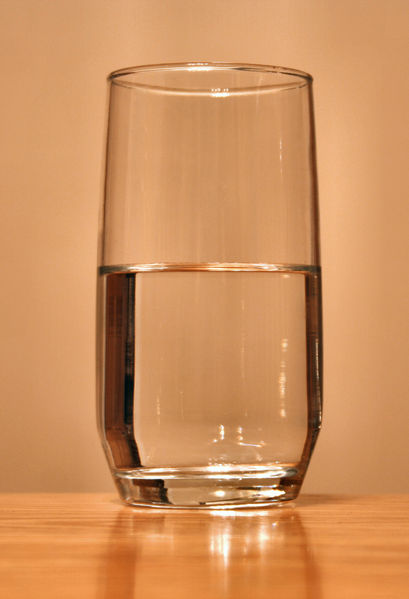Take a moment and reflect on what’s around you right now. Yeah, we’re serious; just stop and look around. Pick one object that’s close by, and reflect on the role petroleum played in extracting the raw materials that comprise it, manipulating those materials into the object you see, and transporting it to you. You probably don’t know, right? Most of us don’t.
 Now go get a drink of water and reflect on the role petroleum plays in getting it to you. Pumping it, cleaning it, purifying it, storing it, and disposing of it after you spit it out or eliminate it into your toilet — all require petroleum.
Now go get a drink of water and reflect on the role petroleum plays in getting it to you. Pumping it, cleaning it, purifying it, storing it, and disposing of it after you spit it out or eliminate it into your toilet — all require petroleum.
How about a snack? Who grew the food, and where? Most of us in the developed world have no idea where our food was grown. But you can bet petroleum played a huge role in irrigating it, protecting it from weeds and pests, fertilizing it, harvesting it, preserving it, transporting it, and selling it to you. Consider this: on any given day, unless you’re an unusual person indeed, your food is much more worldly and better-traveled than you are.
Perhaps you’re getting the idea about how dependent we humans have become on petroleum, more specifically, on cheap oil and gas. The oil age has lasted about 125 years. During that time the population of the world has increased roughly fivefold, from 1.3 billion to about 6.5 billion today. Those who understand such things tell us that, were it not for our exploitation of petroleum, our planet could sustain a population on the order of 2 billion or so. What happens to the overhang? When we no longer can rely on cheap oil and gas, how will we cope with all those mouths to feed?
Because of our complete and pervasive dependence on cheap oil, even a small disruption in supply can devastate the world economy. You can read about such a scenario if you’d like. During the last 125 years of the oil age, banks have created capital by lending money. Their security for doing so was the expectation of future growth, fueled by cheap oil. When cheap oil is no longer available and banks no longer expect future growth, what happens to lending practices? Might we see money shift from long-term equities where it helps to encourage growth, to short-term trading in commodities, speculating on the hourly changes in their value?
Or consider what happens if there’s an outbreak of infectious disease. The manufacture and distribution of vaccines is dependent on cheap oil. Surely we would be able to transport it quickly, but what happens if we can’t make enough vaccine on short notice?
You can speculate endlessly about the bad things that could happen after peak oil; the fact is that our lives are about to change. If we’re smart about how we manage this, the cultures we can create may be more livable than those in which we live now. But the journey from here to there will be brutal. It will expose the selfish and violent nature of humanity to those of us who have always thought of themselves and their neighbors as civilized and peaceful people.
We Americans have grown accustomed to assuming that the federal government will fix whatever problems we have. This won’t happen with peak oil, because (a) with the exception of an occasional brave pioneer like Roscoe Bartlett, our government will remain in denial as long as it possibly can, and (b) by the time the citizens of the U.S. really understand what is happening and demand action, the federal government will lack the power to do anything meaningful. The solutions are likely to be locally envisioned, locally initiated, locally implemented, and locally enforced.
Remember three key words for the future: compassionate, sustainable, and local. They will need to be at the core of everything we do if we’re going to get through this together.